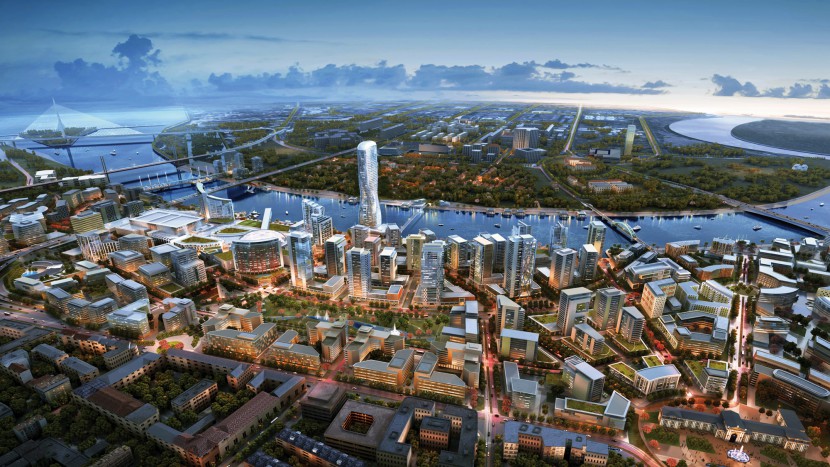Each week we bring you the ten most important pieces of news from Eastern Europe and the Western Balkans.
Compiled by: Hristo Voynov and Eva Jovanova
- Hungarian Foreign Minister Péter Szijjártó stated that he plans to call for a review of the EU-UA Association Agreement after the recent dispute between the countries regarding Ukraine’s new minority language laws. He stated that the rights of Hungarian minorities in Ukraine should not be up for debate and that Hungary would even attempt to terminate the agreement should the law not be revised. Gabor Vona, President of Jobbik, a nationalist opposition party in Hungary, claims that the issue of voting rights for Hungarians outside of Hungary proper has become overly political as the ruling party, Fidesz, wants to give such voting rights knowing that they will benefit while the leftist parties wish to revoke them as they will not benefit electorally. At the same time, he claims that voting rights and dual citizenship for these Hungarians regardless of party affiliation is a must for regional stability..
- Croatia is preparing to enter the Eurozone by 2022. The Croatian National Bank has already prepared a strategy on how the introduction of the Euro as a currency might affect Croatian economy and is expected to publish it by the end of this month. Regardless of the EU strategy, Croatia still needs to convince the European Commission and some countries in the Eurozone that it controls its public debt and that it can halve it in the foreseeable future, local media report.
.
- Andrej Babis, the next likely Czech President, has finally been charged with a subsidies scam in which a company he owns won multimillion euro subsidy that it did not qualify for. The upcoming election is likely to land Babis in an elected position, be it the Parliament or Presidency, and his immunity for the crime will be renewed. His popularity is very high, even though the last year has seen him hit by many scandals. This week Babis claimed to have filed a legal complaint over an anonymous group that has leaked information about his supposed crimes..
- “Serbia is a frontrunner when it comes to European Integration” is what Commissioner for European Neighbourhood Policy and Enlargement Negotiations Johannes Hahn said in Brussels this Tuesday. European Parliament President Antonio Tajani confirmed Hahn’s words this Wednesday, after he finished a meeting with Serbia’s Prime Minister Ana Brnabic. Tajani’s visit to Serbia is planned for this January, when business ties between the EU and Serbia are expected to enhance.
.
- Turkey’s relationship with Russia and Ukraine took an unexpected twist this week. Over the past year, Turkey and Russia have gone from cooperative to tense multiple times, mostly over Russia’s support for Syrian president Bashar al-Assad. Turkey, as the least cooperative NATO member, surprised many with its deal with Russia to buy its advanced anti-aircraft S-400 system which would strengthen ties between the nations. However, Turkey recently stated that it might renege on the deal if it does not receive the know how to produce the system itself in the future. At the same time, Turkish President Erdogan agreed on a $10 billion trade deal with Ukraine. This shows Erdogan taking advantage of multiple sides of the current geopolitical situation to gain the best deal possible for Turkey.
.
- Kosovo’s President Hashim Thaci asked for Albanian citizenship for Kosovo nationals. His argument was that Kosovo remains highly isolated, and that Albanian citizenship was the only way towards free movement of Kosovo nationals. Albania’s President Ilir Meta, however, stressed the importance of finding a resolution to the disputed border demarcation agreement between Kosovo and Montenegro, as one of the main prerequisites for visa liberalizations between Kosovo and the EU..
- Moldova will not be receiving $100 million in EU funding this year, contrary to a previous deal because Moldova has not met the requirements necessary for the assistance. This does not mean the funding is being withdrawn, but only withheld until it works on improving corruption, election reform, and other social issues. It seems Moldova has taken the first steps in this, as the government has started repaying the National Bank for a loan of 668 million lei (roughly $170 million USD) taken out to bail out banks during the financial crisis.
.
- Macedonian courts seem to show no mercy to violence. A court in Skopje sentenced Pance Angelov, one of the attackers in the coup d’etat attempt on April 27, for violently pulling the hair of the then MP and incumbent Minister of Defense, Radmila Shekerinska. Angelov will be jailed for four years. It remains to be seen what will happen to the other mobs who took part in the coup d’etat attempt.
.
- Czech President Milos Zeman has upset many pro-EU politicians in his speech at the Council of Europe where he opposed sanctions against Russia and claimed that there is little that can be done about Russia’s annexation of Crimea at this point in time. Russia agrees, believing that the sanctions are hurting and thus dividing Europe, while Ukrainian President Petro Poroshenko has reiterated that this is not true and the Crimea issue is not settled. The EU’s inability to form a coherent stance on Russia has shown weaknesses in the alliance, especially when Russophiles and Russophobes are still competing over the narrative, years after Russia annexed Crimea..
- Turkish high profile governmental officials have visited the Balkan countries three times in less than four months. Turkey’s Minister of Foreign Affairs, Mevlut Cavusoglu and the former Prime Minister and MP Ahmed Davutoglu made visits to Macedonia in late June and late September. This week, Turkey’s President Recep Tayyip Erdogan is paying a two-day visit to Serbia. Does the Turkish leadership feel nostalgic for the Ottoman Empire?


0 comments